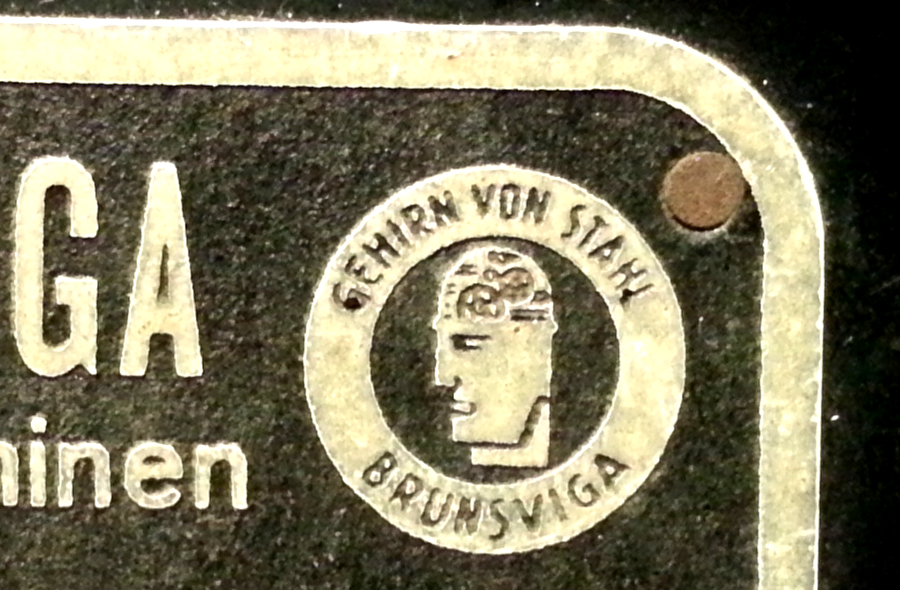
“The most human thing about us is our technology.”
McLuhan
“I don’t feel that I’m using technology, I don’t feel that I’m wearing technology, I feel that I am technology.” is how Neil Harbison relates himself to the technology, that he built to enhance his senses: Neil has overcome his color blindness with a special head mounted device that translates the color-composition of his field of vision into tunes. He tells, that the multi-frequency sound of certain sights can be so specific, that he could even recognize the faces of people he knew by their “harmonies”.
“La Noosphère atteindra collectivement son point de convergence, — à la « Fin du Monde »”
Teilhard
Technology is part of human nature. We have been cooking food for more than two million years, so our alimentary system is fully adjusted to our technological diet. We have been wearing clothes even longer, so they have replaced the pelt of our ancestors. Tools are extensions of our bodies, concluded McLuhan, elaborating on the thoughts of Pierre Teilhard de Chardin. Our cooking food is an extension of our metabolism, clothing extends our skin, the microscope is the extension of our eye, and – most important – computers are extensions of our brains, and networked through the Internet become extensions of our nervous system.
“You will become like us.”
“The cyborg deliberately incorporates exogenous components extending the self-regulatory control function of the organism in order to adapt it to new environments.” wrote Manfred Clynes and Nathan Kline when they coined the term in their 1960 Astronautics paper, proposing “Altering man’s bodily functions to meet the requirements of extratertrestrial environments.”
The “cyborgist” school, thus, could be seen as the heirs of McLuhan, just consequently thinking further on what tools do with us, with our culture, our way to live.
“Individuals now are conceived by chance. Someday, though, they could be ‘composed’ in accord with considered desires and designs. Furthermore, when we build new brains, these need not start out the way ours do, with so little knowledge about the world. What sorts of things should our mind-children know? How many people should occupy Earth? What sorts of people should they be? How should we share the available space?”
Minsky, Will Robots Inherit the Earth?
But why stop with extending the body? Could it become possible to overcome our human condition completely? This is the main idea of transhumanism. If cyborgists follow McLuhan, tranhumanists take Teilhards side. The Omega point, when technology makes us leave our body (as Teilhard had proposed would happen), is rethought as the Singularity now: exponential growth of knowledge and computing power will soon provide the support to upload our consciousness to the matrix.
“If a reasoning human being loves and values life, they will want to live as long as possible—the desire to be immortal.”
Istvan, The Transhumanist Wager
“The physics of immortality” as Frank Tippler called it, would not only end all restrictions of the earthly conditions that bodily creatures like humans used to face. It would not only give us immortality, but would give us instant access to all stored knowledge, all available information, and connect us to all other uploaded beings.
“What if a cyber brain could possibly generate its own ghost, create a soul all by itself? And if it did, just what would be the importance of being human then?”
Kusanagi
We do not need to believe in the Utopian promisses of either narratives. Cyborgism and Transhumanism present us with two perspectives, to what end we want to use our technology. Our tools and cultural techniques might have liberated us from many pressing phyiscal stresses. If we use glasses, we can maintain sight even if challenged by ametropia. A wheelchair gives us back our mobility, at least to some extend. But these aids are designed to enhance parts of our body, not to substitute them. How will we value our bodily life? This defines the chasm, not only between the “enhancementists” and the “transhumanists”, it is the question of technological determinism as such. Is technology a tool to support us, or is it the remedy of our earthly confinement.
“What D.H.S. has done is make it possible to torture a human being to death, and then start again.”
Richard K. Morgan
The idea of leaving our bodies carries a strong dualism: the self in us has to be some “ghost in the shell”, some software, running in our brain. Is this self just an emergent property of neurons firing, like Douglas Hofstadter proposes, so it is truly possible to run a full-scale simulation online -with all the trimmings like emotions, faith, aesthetics? But what about the delicate interactions of hormones, vegetative nervous system, and our mind? Are they expendable?
In any case, when our bodies become replaceable, our physical existence will be devalued. We might become even more careless about the consequences of our actions. While the “enhancmentist” while using technology in a genuine hedonistic way, might still have a strong responsibility to her children and future generations, the “transhumanist” will presume that her memories would be sufficient to cover for environmental losses; for her, there is nothing more real then her thoughts, and thus memories would count for experiences.
Solving the many technological problems involved in manned space flight by adapting man to his environment, rather than vice versa, will not only mark a significant step forward in man’s scientific progress, but may well provide a new and larger dimension for man’s spirit as well.
Clynes/Kline
On Saturday, June 21st, the German Cyborgs Association, Cyborgs e.V., host their first Cyborg Barcamp. I am looking forward to this unconference to not only be inspired by the cyborg-things that people will show and tell, but even more, I hope to have conversations about these ethical questions, that would have sounded like pure science fiction just 20 years ago, but came into reach to become most relevant very soon.

The cyborg barcamp will take place in Berlin at Wikimedia Foundation on June 21st.
Link to barcamp site
